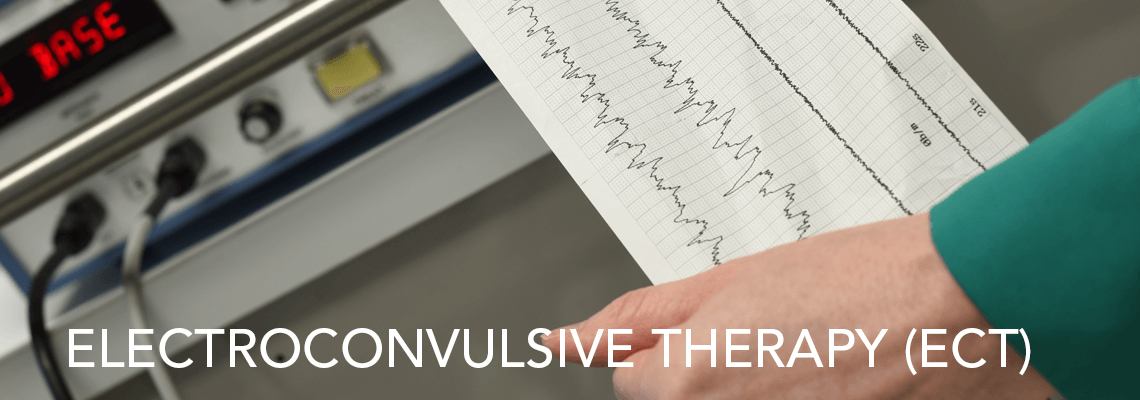About Electroconvulsive Therapy (ECT)
Electroconvulsive therapy, or ECT, is a highly effective therapy for a number of mood disorders, including depression and bipolar disorder, that haven’t successfully responded to other treatments such as antidepressants or talk therapy.
Compared with earlier types of ECT, modern-day ECT offered at Atrium Health is safer, with minimal discomfort. Our highly trained medical team uses the latest equipment and approaches to reduce side effects such as memory problems or headaches. We also coordinate with your mental health provider to align care plans and help adjust your medications as needed.
ECT treatments are grouped together over a short period of time. For example, you may undergo ECT three times a week until your symptoms lift (often within six to 12 treatments).
How ECT Works
ECT sends a brief controlled electric current to the brain to treat major depression and other mood disorders. It helps to jumpstart the brain to improve mood symptoms. While no one knows precisely how ECT works, the consensus among brain stimulation experts is that the treatments do many things at the same time for the brain including enhancing brain chemicals, regulating the hormone system, and improving communication between different parts of the brain.
Most people respond well to ECT. It also tends to work faster than medications – often within the first two weeks of treatment. ECT is especially effective among older people.
What to Expect During ECT
You will first have an IV started to give you anesthesia medicines so that you don’t move and cannot feel the electrical impulses. A doctor will monitor your heart rate, breathing and blood pressure throughout the therapy.
While you are asleep, an electrical current is delivered to the brain. We tailor ECT treatments so you safely receive the smallest amount of electricity found to produce a response.
The treatment itself only takes a few minutes. You are usually alert and able to resume normal activities within an hour. Because you will be sedated, someone will need to drive you home.
Is ECT Right for Me?
You might benefit from ECT if:
- You have major depression, bipolar disorder or schizophrenia
- Your symptoms haven’t improved with medication
- You have a medical condition that prevents you from taking these medications (for example, if you’re pregnant)
- You need quick and effective treatment (for example, if you are pregnant or have thoughts of suicide/hurting yourself)
- Your condition is accompanied by irrational thinking or unreal perceptions
- You have had previous success with ECT
Electroconvulsive Therapy Side Effects
Most patients do well with ECT. The most common side effects are:
- Headache
- Muscle aches
- Short periods of confusion or forgetfulness that typically resolve within a few days or weeks after the treatments have ended
Follow-Up Care After ECT
After your first round of ECT treatments, you might benefit from additional sessions with or without medication therapy to keep your symptoms from coming back. These could vary from one session per week to every month or two.
Learn More
For more information about ECT and other brain stimulation services, call 704-512-7578. A referral is needed for ECT and TMS.
Our ECT Locations
Patients are initially seen at either:
Carolinas HealthCare System Behavioral Health - Charlotte
501 Billingsley Rd.
Charlotte, NC 28211
704-444-2400
Carolinas HealthCare System - Davidson
16740 Davidson-Concord Rd. (Hwy 73)
Davidson, NC 28036
704-801-9200
ECT is performed at the following locations:
Atrium Health Mercy, a facility of Carolinas Medical Center
2001 Vail Avenue
Charlotte, NC 28207
704-304-5000

